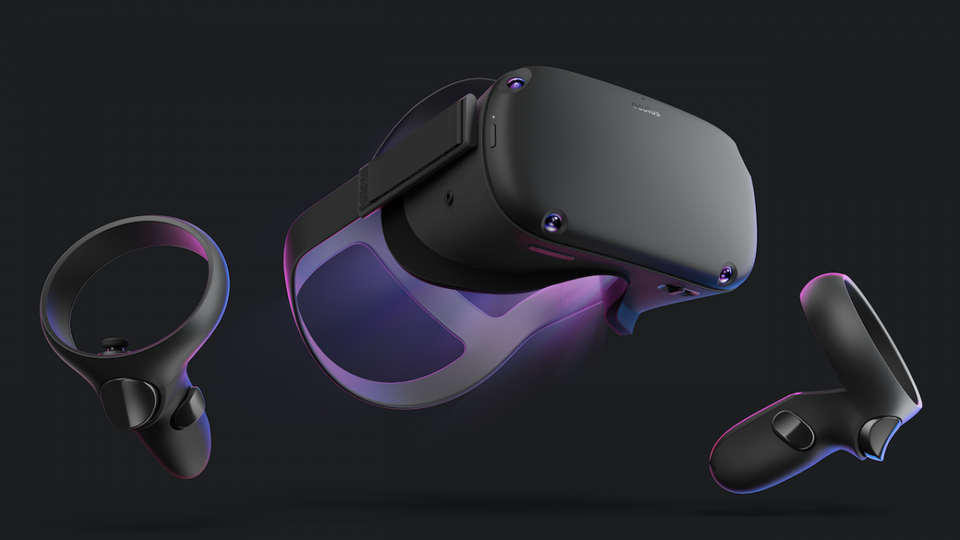2020 will mark a significant milestone in the history of video gaming. Apart from the arrival of some highly anticipated titles, we will get to lay our hands on the new-gen Sony and Microsoft consoles, and might also witness the likes of Amazon and Apple entering the cloud gaming scene. On top of all that, VR gaming in 2020 could also be an industry-defining moment for years to come.
Truth be told, virtual reality has failed to live up to expectations thus far. The first days of HTC Vive and Oculus Rift made us convinced VR would propel the gaming world forward, but in reality, the technology is yet to catch on.
As we approach half a decade into the world of VR next year, can we finally witness VR gaming breaking into the mainstream and revolutionizing video games the way they were forecasted to do back in 2016? The hardware has evolved in recent years, we also have more VR compatible entries now, so did developers finally manage to overthrow the stumbling blocks that held VR gaming back all this time?
Is Oculus Quest the Messiah We Have Been Waiting For?

Oculus Quest and Valve Index were the headliners in a series of new VR headsets released in 2019. From where I stand, I see Oculus Quest as the harbinger of a new era of VR gaming in 2020. More on that later, but first let me share my thoughts on Valve Index.
First of all, I cherish the introduction of knuckle controllers and the unmatched fidelity it brings to the table. It accounts for a more immersive experience and gives me better control over my surroundings. The graphics is crystal clear, the sound quality is exhilarating, and the motion mechanism is as smooth as it gets.
In terms of quality, Oculus Quest doesn’t live up to the standards set by Valve Index. The tracking works fine, the sound is great too, but does it provide a better VR experience than Index? Absolutely not! But what makes Oculus Quest truly special is its staggering price tag. All of a sudden you don’t need to splash out four-digit figures to buy a VR headset; you can now get one for as much as $400!
Price is one of the key factors that have kept VR from becoming a popular household technology. Many gamers never had the chance to try VR gears with their gaming setups as they were priced out of the market. Oculus Quest is the first step towards making VR accessible to a wider pool of consumers by lowering the price barrier.
Oculus Quest is not just a budget VR option; it has much more to offer. The simplicity and flexibility of it is a breath of fresh air in VR terms. Gone are the days you need to station yourself in front of your PC or console. The sensorless comprehensive tracking system of Oculus Quest is a huge leap towards making VR a mobile technology. You can take the headset anywhere you want and relish an un-tethered VR experience.
With all these groundbreaking attributes, Oculus Quest is shaping out to be a breakthrough piece that promises to take VR gaming in 2020 to a whole new level.
2019 Was a Huge Commercial Success for VR
2019 was commercially huge for VR headsets and Oculus Quest was the industry leader throughout the year. Facebook was overwhelmed with the response they received for their latest VR offering as CEO Mark Zuckerberg publicly stated “We’re selling [Oculus Quest units] as fast as we can make them.”A SuperData survey showed Oculus Quest made up for 49% of the total sales in VR headsets globally in 2019.
It’s not only the much-acclaimed Oculus Quest that drew interest from consumers. Oculus Rift S, which was also released in 2019 but got eclipsed to the soaring popularity of Oculus Quest, ran out of stock as of February 2020. All Valve Index units have also been sold out by December, and at the time of this writing, the manufacturers couldn’t confirm when the next batch would hit the market.
Developers Are Making More VR Content
Ultimately, a top-notch VR headset is worthless to a gamer without a rich gaming library. The lack of immersive content has been one of the common complaints cited by users for not investing in VR for gaming purposes. However, a 41% increase in VR game revenues in 2019 suggests more and more developers are now becoming interested in making VR oriented entries.
Studios are mixing it up between the continuation of famous IPs and creating a brand new game that exploits the traits of VR to its fullest. Oculus partnered up with Respawn Entertainment to resurrect the Medal of Honor series in the form of Medal of Honor: Above and Beyond. Thanks to the legacy of the Medal of Honor franchise, the game is almost certain to rake in colossal revenues for its developing team.

But Beat Games showed you don’t need to take advantage of an established franchise to make a commercially successful VR game. Beat Saber doesn’t inherit a pedigree; rather, it made itself a cornerstone of VR gaming with its fun-to-interact gameplay. It is also the first virtual reality game to have claimed the platinum status by selling more than a million copies.
With improved physics engines, developers could now finally unlock the true potential VR holds in terms of gaming. I can’t wait to try out the likes of Iron Man VR, Medal of Honor: Above & Beyond, Lone Echo II, etc. in 2020 and see for myself how much progress we have made in immersive gameplay.
Final Thoughts
Steam Hardware Survey reveals less than 1% of the total Steam users constitute the fraction of major VR headset users in the platform. Yes, this number doesn’t consider standalone VR headset users like Oculus Quest and those who don’t power up their headsets much often, but, still, it’s a pretty small number.
However, that minute fraction is growing with the arrival of affordable hardware, technological upgrades, and a plethora of exciting new titles. VR gaming in 2020 may or may not help VR take off to the next level. But one thing is for certain: VR does have a lot in store for us in 2020.



